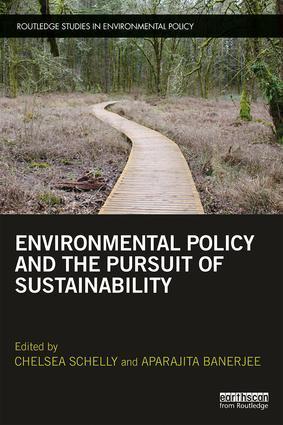My books focus on understanding technological adoptions that illustrate the possibility for radical social change. My co-edited volumes provide lessons for navigating sustainability transitions through environmental policy, and transdisciplinary environmental management
Crafting Collectivity
Crafting Collectivity: American Rainbow Gatherings and Alternative Forms of Community
This book, based on ethnographic research, was published by Paradigm Publishers in September, 2014. Paradigm Publishers was later purchased by Taylor and Francis, and Routledge reprinted the book in 2016. It is also available on Amazon.
“Every summer, thousands of people assemble to live together and celebrate the Annual Gathering of the Rainbow Family. Participants establish temporary systems of sanitation, health care, and water distribution and filtration; meals are provided freely to all who gather; and attendees develop sharing and trading systems, recreational opportunities, and educational experiences distinct to this creative social world. The Rainbow Family has invented itself as a unique modern culture without formal organization, providing the necessities of life freely to all who attend. The Annual Gathering of the Rainbow Family has been operating for more than forty years as an experiment in liberty that demonstrates how material organization, participation, and cultural connection can reshape social relationships and transform individual lives. Grounded in sociological theory and research, the book considers what kind of culture the material systems of “Babylon”—a term used by the Rainbow Family to refer to the world outside the Gathering—reinforce and how society could facilitate the kind of social world and human welfare people desire.”
Photo from the 2013 National Rainbow Gathering in Montana. Photo by Mandy Smith. Used with permission.
Dwelling in Resistance
My book, Dwelling in Resistance, was published Rutgers University Press in August, 2017. This book examines The Farm, Twin Oaks, Dancing Rabbit Ecovillage, and Earthship Biotecture as illustrative case studies of the potential for changing relationships among humans and between humans and nature via alternative technologies and forms of material organization.
In the book, I argue that the choices to live in these alternative forms of residential life are not motivated by alternative environmental values, but by values that correspond to more traditional American values regarding freedom and community. It is through alternative practices rather than alternative values that the people living in these communities dwell in resistance, and in doing so offer real solutions for changing social relationships and environmental impacts through the adoption of alternative technologies, communities, and practices. For more information, see The Rutgers University Press site.
You can read more about the book via my “Page 99 test” posted here and here.
Cover photo by Savannah Fox. Used with permission.
Environmental Policy and Sustainability
Environmental Policy and the Pursuit of Sustainability, edited by Chelsea Schelly and Aparajita Banerjee, was published by Routledge in 2018.
It is increasingly apparent that human activities are not suitable for sustaining a healthy global environment. From energy development to resource extraction to use of land and water, humans are having a devastating effect on the earth’s ability to sustain human societies and quality lives. Many approaches to changing the negative environmental consequences of human activities focus on one of two options, emphasizing either technological fixes or individual behavior change to reduce environmental harms through sustainable consumption habits. This book takes a different approach, focusing on the role of environmental policy in shaping the possibilities for and creating hindrances to pursuing more sustainable use of environmental resources.
This unique compilation examines environmental policy through empirical case studies, demonstrating through each particular example how environmental policies are formed, how they operate, what they do in terms of shaping behaviors and future trajectories, and how they intersect with other social dynamics such as politics, power, social norms, and social organization. By providing case studies from both the United States and Mexico, this book provides a cross-national perspective on current environmental policies and their role in creating and limiting sustainable human futures.
Organized around four key parts – Water; Land; Health and Wellbeing; and Resilience – and with a central theme of environmental justice and equity, this book will be of great interest to students and scholars of environmental policy and sustainability.
Cover photo by Elizabeth Steward. Used with permission.
A Research Agenda for Environmental Management
A Research Agenda for Environmental Management is a co-edited volume published by Edward Elgar Publishing in 2019. Edited by Kathleen E. Halvorsen, Chelsea Schelly, Robert M. Handler, Erin C. Pischke, and Jessie L. Knowlton.
The understanding of global environmental management problems is best achieved through transdisciplinary research lenses that combine scientific and other sector (industry, government, etc.) tools and perspectives. However, developing effective research teams that cross such boundaries is difficult. This book demonstrates the importance of transdisciplinarity, describes challenges to such teamwork, and provides solutions for overcoming these challenges. It includes case studies of transdisciplinary teamwork, showing how these solutions have helped groups to develop better understandings of environmental problems and potential responses.



